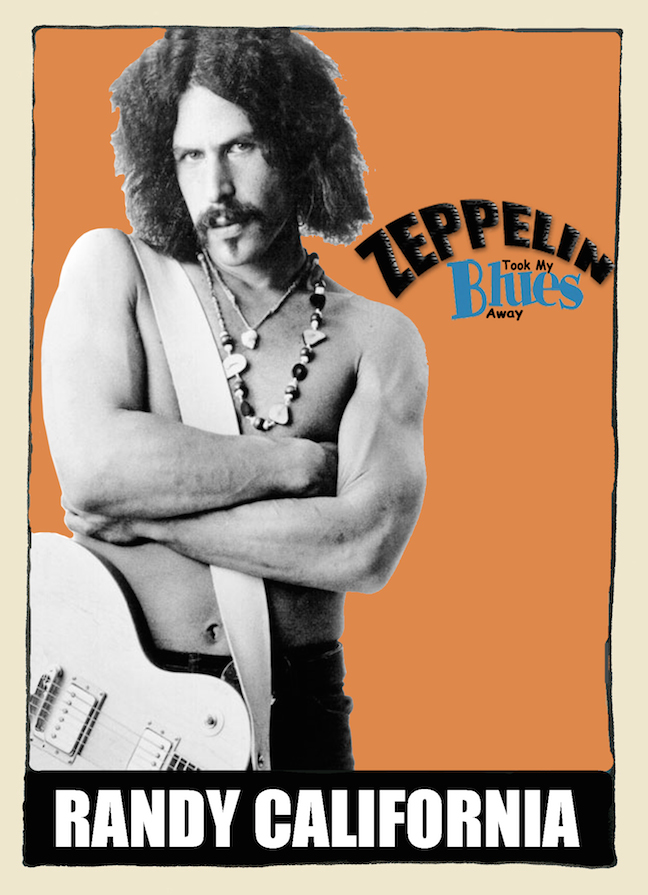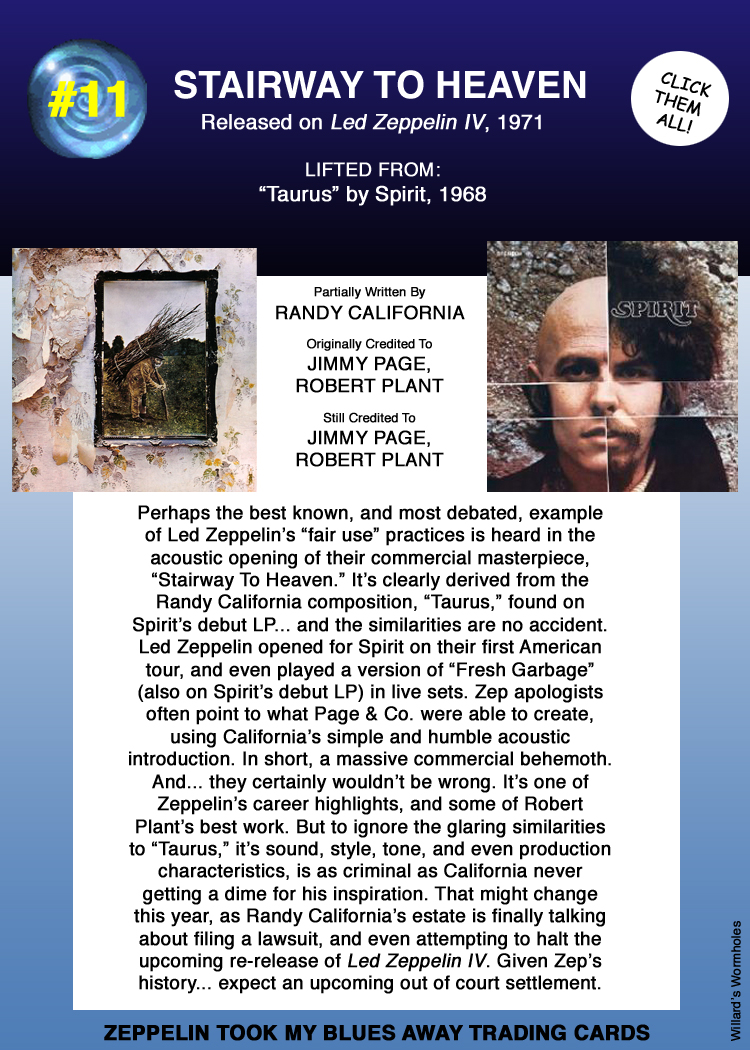Few have gone broke working in copyright law. Some, however, have gone broke breaking it. Others have built up enough of a reputation and fortune by bending the rules just far enough, though they still run the risk of, if not going financially bankrupt, then looking creatively bankrupt. The English rock band Led Zeppelin seems to have artfully walked just this line for decades, though their usage of the blues and folk songs that inspired them has more recently undergone some seriously high-profile examination in court. Even their signature “Stairway to Heaven” had a suit filed against it in May, “brought by the estate of the late musician Randy California against the surviving members of Led Zeppelin and their record label. The copyright infringement case alleges that the Zeppelin song was taken from the single ‘Taurus’ by the 1960s band Spirit, for whom California served as lead guitarist.”
Those looking to make up their own minds about the relevant issues of musical authorship here can look to Zeppelin Took My Blues Away, an “illustrated history of copyright indiscretions,” created in trading card format, and featuring clips for the purposes of comparison and contrast. In this post, we have the card and clips documenting the resemblances between “Stairway to Heaven” and “Taurus,” Randy California’s 1968 song. The series comes to 19 cards in total, including such perhaps excessively Zeppelin-borrowed tunes as Bert Jansch’s “Blackwaterside,” Ritchie Valens’ “Ohh, My Head,” Willie Dixon’s “You Need Love,” and Jake Holmes’ “Dazed and Confused.” The question of whether we can call Jimmy Page and Robert Plant reckless music thieves or simply artists making use of what came before — as all artists must — has no easy answer. I, for my part, can’t even imagine the legal drudgery required for a verdict in cases like this. Something tells me that nothing as fun as trading cards ever gets admitted as evidence.
LED ZEPPELIN “Stairway To Heaven” 1971
SPIRIT “Taurus” 1968
Related Content:
Led Zeppelin Plays One of Its Earliest Concerts (Danish TV, 1969)
Hear Led Zeppelin’s Mind-Blowing First Recorded Concert Ever (1968)
Colin Marshall hosts and produces Notebook on Cities and Culture and writes essays on cities, language, Asia, and men’s style. He’s at work on a book about Los Angeles, A Los Angeles Primer. Follow him on Twitter at @colinmarshall or on Facebook.




Years ago, in a screenwriting class, the instructor urged us to ask ourselves, “Has it been told before (what hasn’t?), and if so, can you tell it better?” No one can deny Zep’s metal-blazing originality. Like all artists, they mined the pits for raw material, but unlike most they take complete ownership of everything they perform. They are the authority. Think of how many groups Led Zep could sue for impersonating them. From Van Halen to Kiss to Aerosmith to Guns and Roses. And none of them could do them any better.
It’s not about “impersonation,” it’s about Zeppelin using the lyrics and melodies of others and then taking the credit for writing it themselves. They’ve done it a lot and been sued many times for it.
If an artist didn’t write a song they should give credit to the writer. Plain an simple. Be fair.